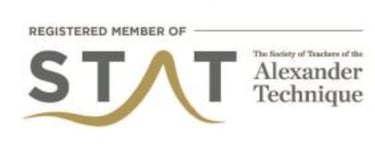Posture?
Posture can be a dirty word within the Alexander Technique world. Its derived from Latin and translates to something like ‘position’, or ‘to place’. If during a conversation I tell someone that I am an Alexander Technique (AT) teacher, they usually take up a posture, they haul themselves up, stiffen their lower back and pull their shoulders back. A minute later they slump down as the effort is too great to sustain it.
It’s the same in the martial arts, people are taught to go into stances, hold themselves in semi-stress positions, in the vein hope that new muscles will branch out through their bodies. If muscles do grow, they grow stiff and unyielding. I’m not sure its possible we can get rid of the word, but if we could I would prefer ‘poise’ to take its place. Dictionary terms for poise are graceful, balanced, not awkward. When I watch my cats at play they are my definition of poise, balanced and ready to act. They might posture, but only as a verb.
From the AT perspective we are much happier using a term like postural support, or even postural support mechanism. These relate to the interactions and relationships with the bones and deeper postural muscles, which we cannot consciously control.
The human body has evolved to spring up, to react to gravity by lengthening and widening; to expand. Habits generally cause us to pull ourselves in and shorten our muscles. Constantly reacting to everyday events can lead us to exist in a permanent startle pattern, head pulled back and down, knees pulled in, chest hollowed… you get the point I’m making.
So to regain your poise the first step is to notice how you react to stimulus. Start with something small like a notification on your phone, and notice how you mental response has a physical manifestation in the attitude of your body. Do you pull yourself down to the phone, does your mood change if its not what you want in the text? Poise means a freedom to move, to change. So take that first step and say no to your first reactions and yes to the possibility of spontaneous response. A more poised self.

